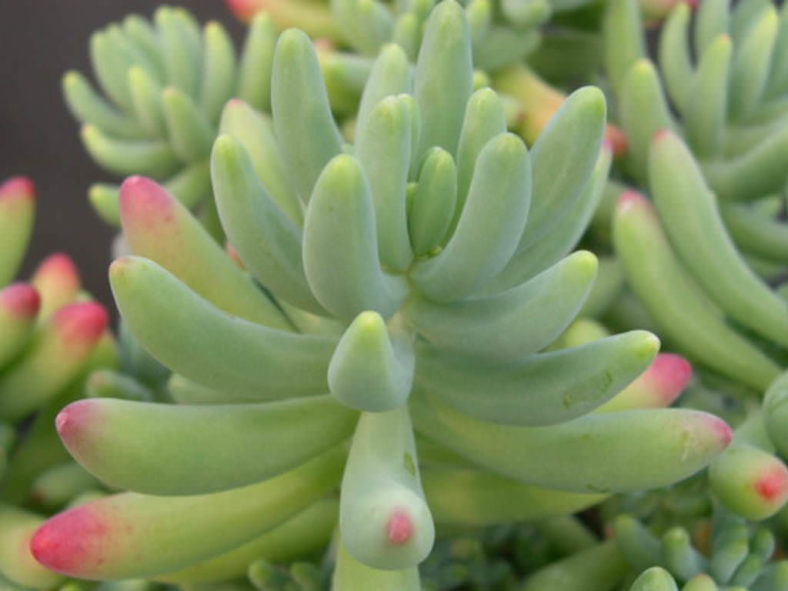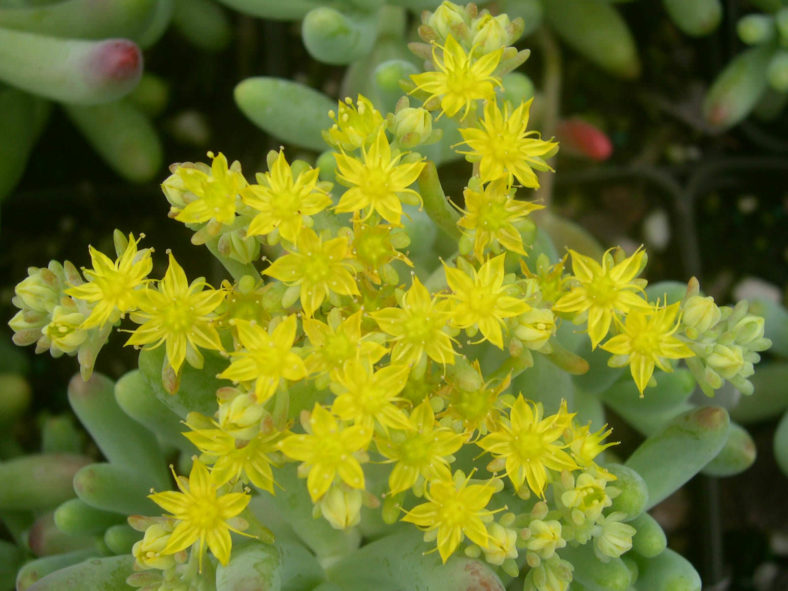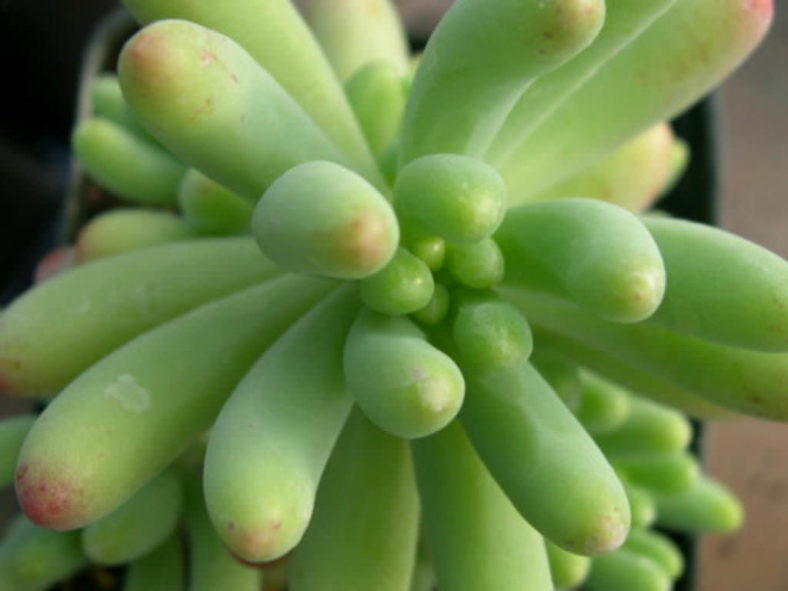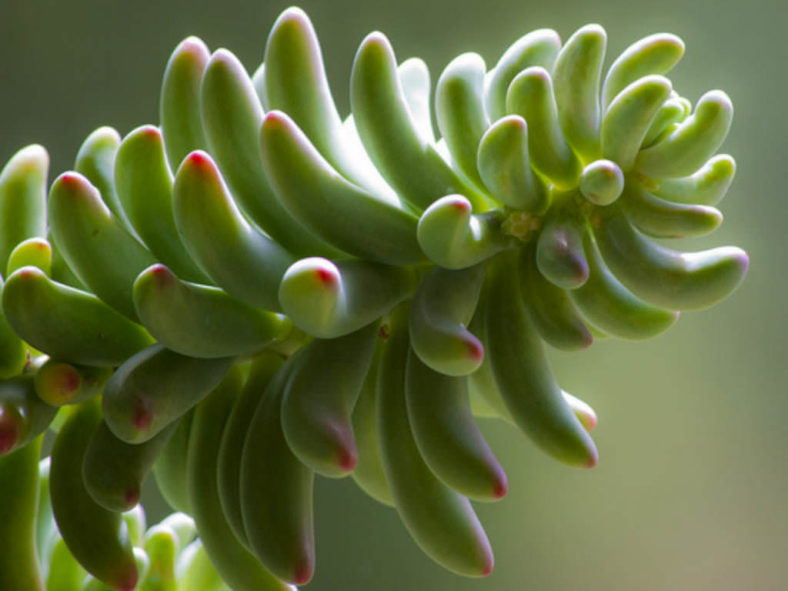Scientific Name
Sedum pachyphyllum Rose
Common Name(s)
Blue Jelly Bean, Jelly Beans, Jelly Bean Plant, Many Fingers, Silver Jelly Beans, Succulent Beans,
Scientific Classification
Family: Crassulaceae
Subfamily: Sempervivoideae
Tribe: Sedeae
Genus: Sedum
Etymology
The specific epithet "pachyphyllum (pak-ee-FIL-um)" means "thick-leafed" and refers to the thick fleshy leaves of this species.
Description
Sedum pachyphyllum is a small succulent shrub that branches freely and spreads over time by rooting stems and fallen leaves. It can grow up to 1 foot (30 cm) tall. The fleshy, erect branches become prostrate, trailing, and woody as they grow. The club-shaped leaves measure up to 1.6 inches (4 cm) long and 0.4 inches (1 cm) in diameter. They are glaucous silvery-green, often tipped with red.
In summer, yellow star-shaped flowers appear in clusters on erect or reflexed flower stalks.

Hardiness
USDA hardiness zones 8b to 11b: from 15 °F (−9.4 °C) to 50 °F (+10 °C).
How to Grow and Care
When growing Sedums, keep in mind that these plants need very little attention or care. They will thrive in conditions many other plants thrive in but do just as well in less hospitable areas. They are ideal for that part of your yard that gets too much sun or too little water to grow anything else. A common name for Sedum is Stonecrop because many gardeners joke that only stones need less care and live longer.
Sedum is easily planted. For shorter varieties, laying the plant on the ground where you want it to grow is usually enough to start it there. They will send out roots from wherever the stem touches the ground and root itself. If you want to ensure that the plant will start there, add a very thin covering of soil.
You can break off one of the stems for taller varieties and push it into the ground where you want to grow it. The stem will root very easily, and a new plant will be established in a season or two.
Learn more at How to Grow and Care for Sedum.
Origin
Sedum pachyphyllum is native to Mexico (Sierra Mixta, San Luis, and Oaxaca).
Forms and Hybrids
- Sedum pachyphyllum 'Cristatum'
- Sedum 'Jaspa'
- Sedum × rubrotinctum
- ×Graptosedum 'Francesco Baldi'
- ×Sedeveria 'Hummelii'
Links
- Back to genus Sedum
- Succupedia: Browse succulents by Scientific Name, Common Name, Genus, Family, USDA Hardiness Zone, Origin, or cacti by Genus
Photo Gallery
Click on a photo to see a larger version.


